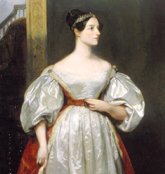/strong>, a professor emerita of English who was director of UMBCs womens studies program at the time, was bowled over by the immediacy of the new technology and open to its possibilities. It seemed to me that [email] would be a great womens studies tool, she recalls.
Yet as Korenman dove into the wired world, she observed that societal gender gaps were being replicated and deepened in the burgeoning landscape of technology. Even as late as 1995, I remember a survey that said only 5 percent of Internet users were women, she notes.
Korenman worried the positive changes for women that she had seen in her lifetime might be wiped out if women werent actively involved in the field. So she founded CWIT to focus on women as users and developers of information technology.
Twenty-three years later, Penny Rheingans, a professor of computer science and electrical engineering at UMBC, serves as the programs director. She observes that the program remains dedicated to increasing the representation of women among those who create technology.
The CWIT Scholars program is at the heart of the centers activities. The 44 undergraduates in engineering or technology selected for the program are surrounded by a community of peers and receive mentoring from faculty, fellow students, and industry professionals. These scholars also have the opportunity to live together on campus in the CWIT Living Learning Community in Erickson Hall.
Former CWIT Scholar Dana Douglas 07, information systems management, and 10, M.S., information systems, found a job performing research and usability studies in interface design for UserWorks, a company located in Silver Spring. The constant support of the staff [at CWIT], as well as my fellow scholars, she says, really gave me the confidence to realize that I could [work in information systems] and that even if I struggled, that was okay.
CWITs combination of academic rigor and community has led to some remarkable student outcomes. The program has a 90 percent six-year graduation rate, compared to a 50 to 60 percent rate for non-CWIT scholars.
Indeed, the centers successes have been apparent to federal research agencies and private industry, both of which have provided funding to expand the centers work in engineering greater diversity in the tech sector.
The National Science Foundation is supporting the Transfer Scholars in Information Technology and Engineering (T-SITE) with a grant for 12 transfer students to find the same community. And the Northrop Grumman Foundation has provided funding to create a Cyber Scholars program for nine students with a particular focus on cybersecurity.
Rheingans says that the new programs serve the core mission of increasing the gender diversity of technology fields, but also highlight different paths into the field either through community college or through discovery while at UMBC. Both programs also bring additional complementary aspects of diversity, such as the increased economic diversity that UMBC receives from transfer students.
Nicole Ruediger
(10/15/13)

